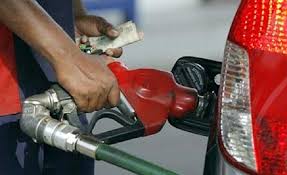THE ever-increasing prices of Premium Motor Spirit (PMS), populalry called petrol, which was one of the fallouts of the recent hardship protest, is having a negative impact on overall economic growth, thus causing huge losses to countless businesses, leading to lower consumer spending, and encouraging smuggling as the rise in prices directly affects the daily lives of the people.
The unannounced increase in the price of petrol, now selling between N850 and N900, depending on the disposition of the fuel station owner in contrast to the N710 and N750 it was sold about two weeks ago, has worsened the country’s cost of living crisis, as households keep struggling to keep up with the rising cost of goods and services.
It is quite disheartening that the burden is especially felt by low – income individuals struggling to make ends meet. With over 40 per cent of the population living in extreme poverty, the current increase in the price of petrol has further exacerbated the financial hardships faced by vulnerable communities. Even at the cost of N750 per liter, car owners have been finding it difficult as most people who can afford it have been having harrowing experience, while some now sleep at filling stations in a bid to obtain fuel.
The disturbing situation presents significant challenges for the general population and businesses. Nigerians are now experiencing increased financial strain due to higher transportation costs and rising inflation rates. The effects on the cost of transportation has led to higher expenses for commuting to work, school, or other essential places.
The arbitrary upward adjustments of petrol price have also led to high cost of living and inequitable distribution of income in the country, and if the trend continues unabated, the consequences will be too collosal as it will further impoverish the already pauperised masses.
Hence, the urgent need for the Nigeria National Petroleum Company Limited (NNPCL) to speak out and enlighten Nigerians on what the problem is and what the corporation is doing to mitigate the intensified suffering of the people, occasioned by the continuous rise in petrol price.
Nigerians deserve an explanation from the NNPC Ltd, considering its position as the only entity licensed to operate in the country’s petroleum industry, with the mandate not only to harness the possibilities of oil and gas, address energy demand and drive the national economy, but empowered to regulate and implement policies. It will, therefore, be a dereliction of duty on their part to allow independent petroleum marketers arrogate to themselves the right to fix petrol price.
We urge the federal government to, as matter of national emergency, put intervention measures in place to arrest the spiralling petrol price in order to ameliorate the excruciating hardship being faced by Nigerians, particularly the poor masses, on daily basis, as a result of some policies of government, of which fuel subsidy removal and the unregulated petrol price are major contributors.
The government should prove that in the formulation of policies and pursuit of good governance, that the peoples’ welfare is prioritized by reversing some of the policies and programmes that have adversely affected the socio- economic lives of the citizenry. This is because the current rise in petrol price, if not moderated, would give the impression that the government is insensitive to the plight of the people as the situation is already deepening the state of hopelessness of many Nigerians.
To reduce dependence on petrol and mitigate the impact of the unregulated rise in petrol price, we call on the government to encourage Nigerians to explore alternative source of energy such as Compressed Natural Gas ( CNG), while the government invests in infrastructure such as pipelines, storage facilities and transportation networks to ensure efficient distribution of fuel. There is need to invest in upgrading and expanding of the refineries to reduce reliance on imports and ensure a steady supply of fuel, as well as tackle corruption and inefficiency in the fuel distribution system, which often leads to hoarding and diversion of fuel.


